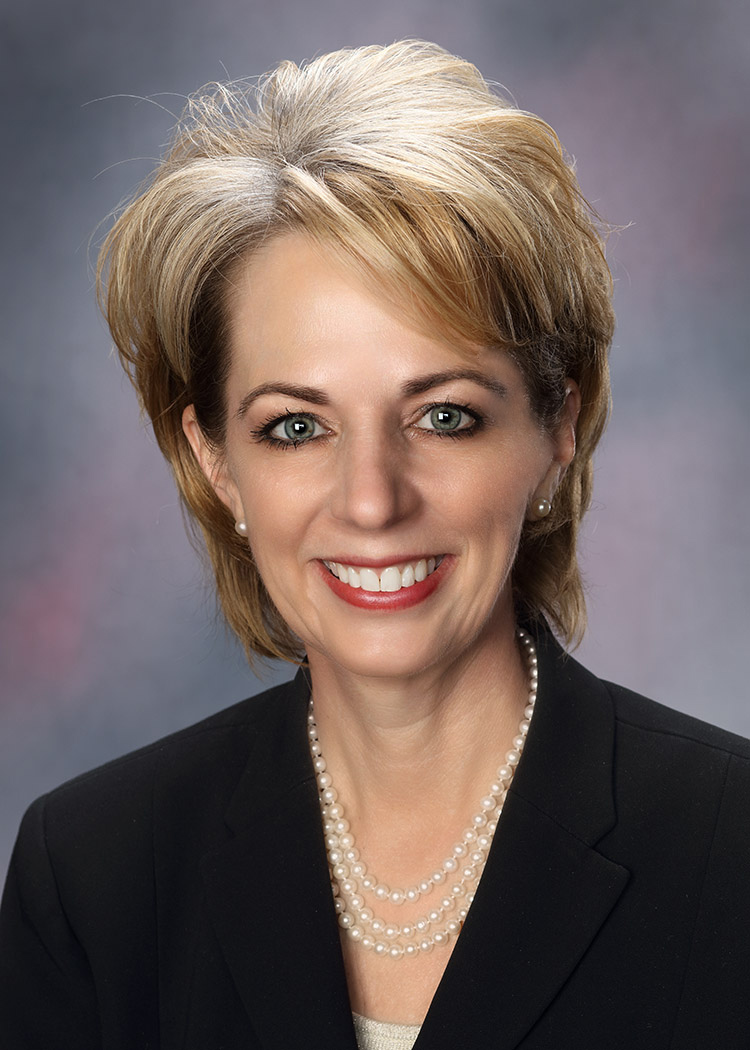Heart of a Tiger: FHSU’s new Telehealth certification

2/16/24
By Tisa Mason
HAYS, Kan - Fort Hays State University has transformed the lives of countless individuals and uplifted the rural communities in Western Kansas by focusing on our strengths of affordability, accessibility, and adaptability. One remarkable example of the university’s adaptability is the development of a new Telehealth certification program for Mental Health Providers.
Telehealth allows for the delivery of health-related services and information via electronic and telecommunication technologies. This approach enables healthcare providers to deliver services regardless of the distance between patient and clinician. According to Jessica Albin, FHSU’s interim director of counseling services, utilizing telehealth platforms to facilitate personal counseling services has contributed significantly to the work of Health and Wellness Services.
“Telehealth counseling allows us to support students in various locations across Kansas in ways that would be impossible otherwise,” Albin said. “Whether it’s an FHSU Online student, a student fulfilling their student teaching responsibilities or participating in an internship, or an on-campus student who is unwell and unable to come into the office for their appointment, telehealth allows them to access therapeutic support when and where they need it. Research consistently shows that this approach is as effective as in-person counseling.”
The introduction of telehealth counseling has revolutionized mental health support by reaching individuals in remote areas, particularly in rural communities. This plays a crucial role in addressing healthcare challenges that providers and patients face in these areas, creating a more equitable healthcare system.
By remotely monitoring patients and conducting virtual consultations, providers can optimize their resources and reduce the need for frequent in-person visits, which is particularly beneficial in areas with scarce healthcare infrastructure.
This shift to telehealth also generates cost savings for healthcare providers by minimizing physical infrastructure and transportation expenses - the streamlined allocation of resources benefits providers and patients. Additionally, remote consultations and monitoring enable healthcare professionals to manage more patients efficiently, leading to increased productivity and better utilization of healthcare staff, ultimately enhancing the quality and accessibility of mental health services.
Patients also experience numerous advantages through telehealth, including improved access to healthcare, time and cost savings, timely intervention, and enhanced continuity of care. Additionally, remote monitoring and telehealth consultations enable timely intervention and management of chronic conditions, even when immediate access to healthcare facilities is limited. The coordination among healthcare providers ensures seamless communication and continuity of care, essential for patients with complex medical conditions who require ongoing treatment. Telehealth also empowers patients by providing them with tools and information for self-management, increasing their engagement in mental wellness.
Dr. Sarah Lancaster, assistant professor and program coordinator of school counseling, emphasizes the importance of access to care. Even in the community of Salina, Kansas, transportation challenges often hindered people from seeking the mental health care they needed. Sarah recalls a family that had to spend four hours on buses to attend an hour-long mental health appointment. Telehealth eliminates these barriers, allowing individuals to receive services in the comfort of their own homes or even from school if technology is an issue. It is a game-changer for rural areas where mental health services may be scarce or nonexistent.
The COVID-19 pandemic accelerated the adoption of telehealth, and the good news is that health insurers are expected to continue covering telehealth visits. The Centers for Medicare & Medicaid Services and the Department of Health and Human Services have extended various Telehealth flexibilities, allowing patients to access telehealth services in any geographic area. In addition, many commercial health plans and Medicaid programs have expanded coverage for telehealth services.
As telehealth practice for mental health evolves, so does the need for enhanced understanding and new skills. The Fort Hays State University Telehealth certification will enhance practitioners’ technical knowledge, privacy, and ethical codes and protocols. Practitioners must understand limitations, biases, errors, and operational issues to avoid misuse. Training will cover informed consent, securely handling data, and confidentiality. Practitioners need to be well-versed in the ethical codes of their professional organizations as they relate to telehealth.
As telehealth continues to evolve and become a permanent part of mental health counseling services, it promises to bridge the gaps in healthcare access, enhance provider efficiency, and improve patients' overall health outcomes and experiences. By embracing the potential of telehealth, mental health counselors can truly transform the way mental health care is delivered, ensuring that no one is left behind, regardless of their location or circumstances.
Our faculty's commitment to developing a new telehealth certification for mental health counselors showcases their forward-thinking approach. It emphasizes the importance of their work in the ever-evolving mental health field. Their dedication to innovation positions them as true pioneers in the industry.